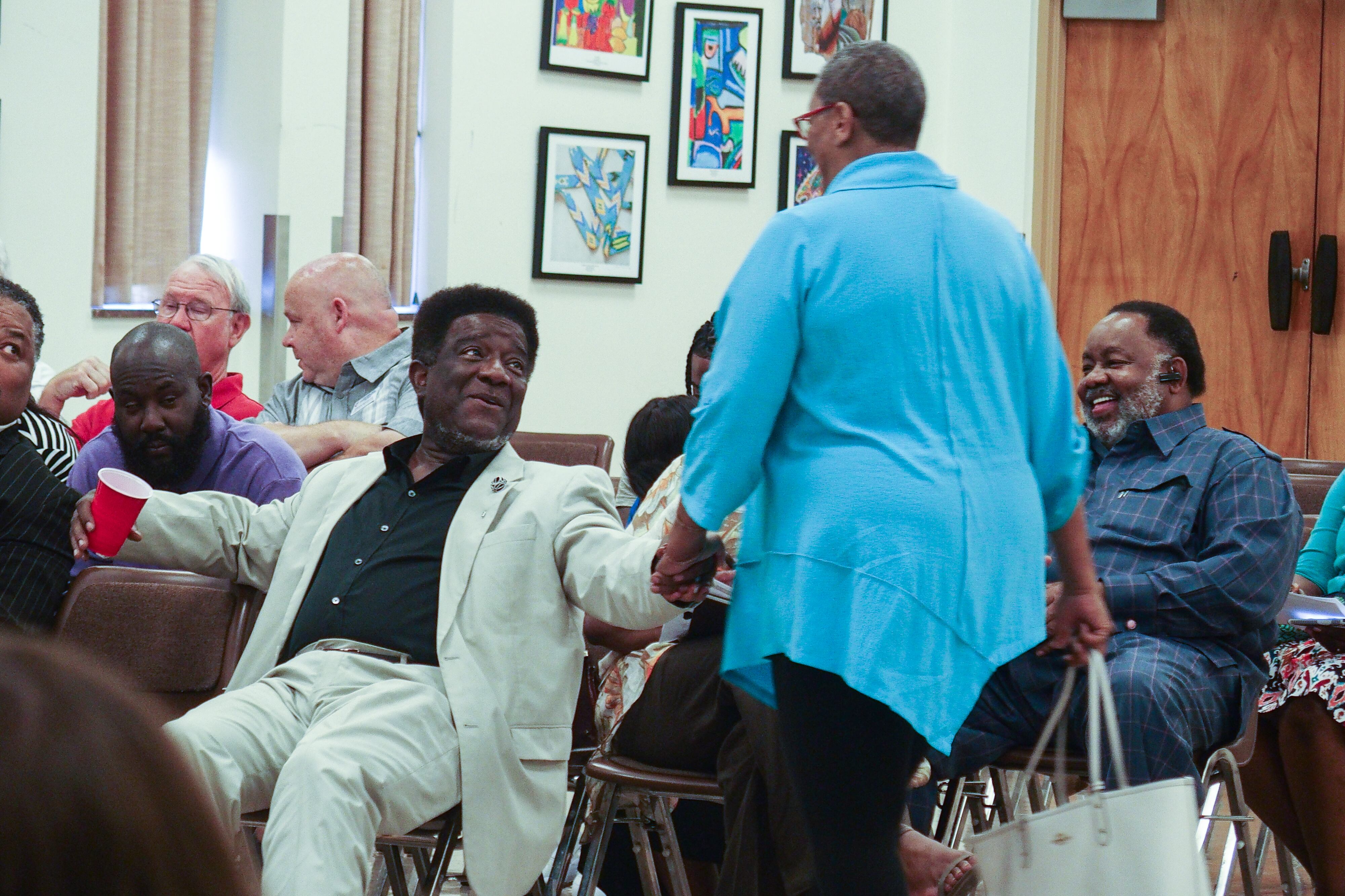The chair of the Memphis Shelby County Schools board wants newly elected member Keith Williams to relinquish his post as head of the district’s biggest teacher’s union, warning that his roles on both bodies pose a potential conflict of interest.
Williams, an educator for over 40 years, won election to a four-year term on the school board last month in a six-way race to represent District 6, which spans South Memphis, Riverside, Westwood, and Whitehaven. But one week after his swearing-in, he remains executive director of the Memphis-Shelby County Education Association, according to the union’s website and a biography that appears on the MSCS website.
Board Chair Michelle McKissack called Williams “a great voice for the teachers community” over the years, but said Friday that she believes Williams should step down from the union position, saying it would be extremely challenging to prevent a conflict of interest.
“As a school board member, he now has to use that voice for all teachers, all students, and all families,” McKissack said. “Everything we do touches upon teachers and impacts them. … It’s definitely a tightrope you have to walk and be cognizant of.”
Williams did not respond to Chalkbeat’s multiple interview requests.
Board policy requires newly elected board members to relinquish any employment within the district, but it does not expressly prohibit members from working for or being involved with teachers unions.
The board’s code of conduct, however, states members must “represent the interests of the citizens of the entire school district. The code, established in 2011, also says that accountability to the entire district must supersede any conflicting loyalties a member has, whether to advocacy or interest groups, as members of other boards or staffs, or personal interests a member may have as a district parent or the relative of a district employee.
And the board’s code of ethics, issued in 2010, says members should disclose “any personal interest that affects, or that would lead a reasonable person to infer that it affects, the official’s or employee’s vote on the measure” before such a vote takes place.
MSCS board policies largely follow those outlined by the Tennessee School Board Association’s candidate guide, which says such board member disclosures should be detailed and made public.
Williams, a well-known union leader and education advocate in the city, handily won election in last month’s contest with 42% of the vote. He beat out five other candidates, including Charles Everett, whom the Shelby County Commission had appointed to the District 6 seat as a replacement for Shante Avant.
Williams, a native Memphian, began his teaching career in Knoxville in 1974. In 2005, after retiring from teaching in Memphis City Schools, he was elected to the board of directors of the Memphis Education Association, and in 2011, he was elected president of the union. As the executive director of the newly merged Memphis-Shelby County Education Association, Williams represents over 3,000 members across the county, according to his biography.
The three other board members sworn in last week were newcomer Amber Huett-Garcia, who represents District 8, and incumbents McKissack and Joyce Dorse-Coleman, who represent Districts 1 and 9, respectively.
Samantha West is a reporter for Chalkbeat Tennessee, where she covers K-12 education in Memphis. Connect with Samantha at swest@chalkbeat.org.






